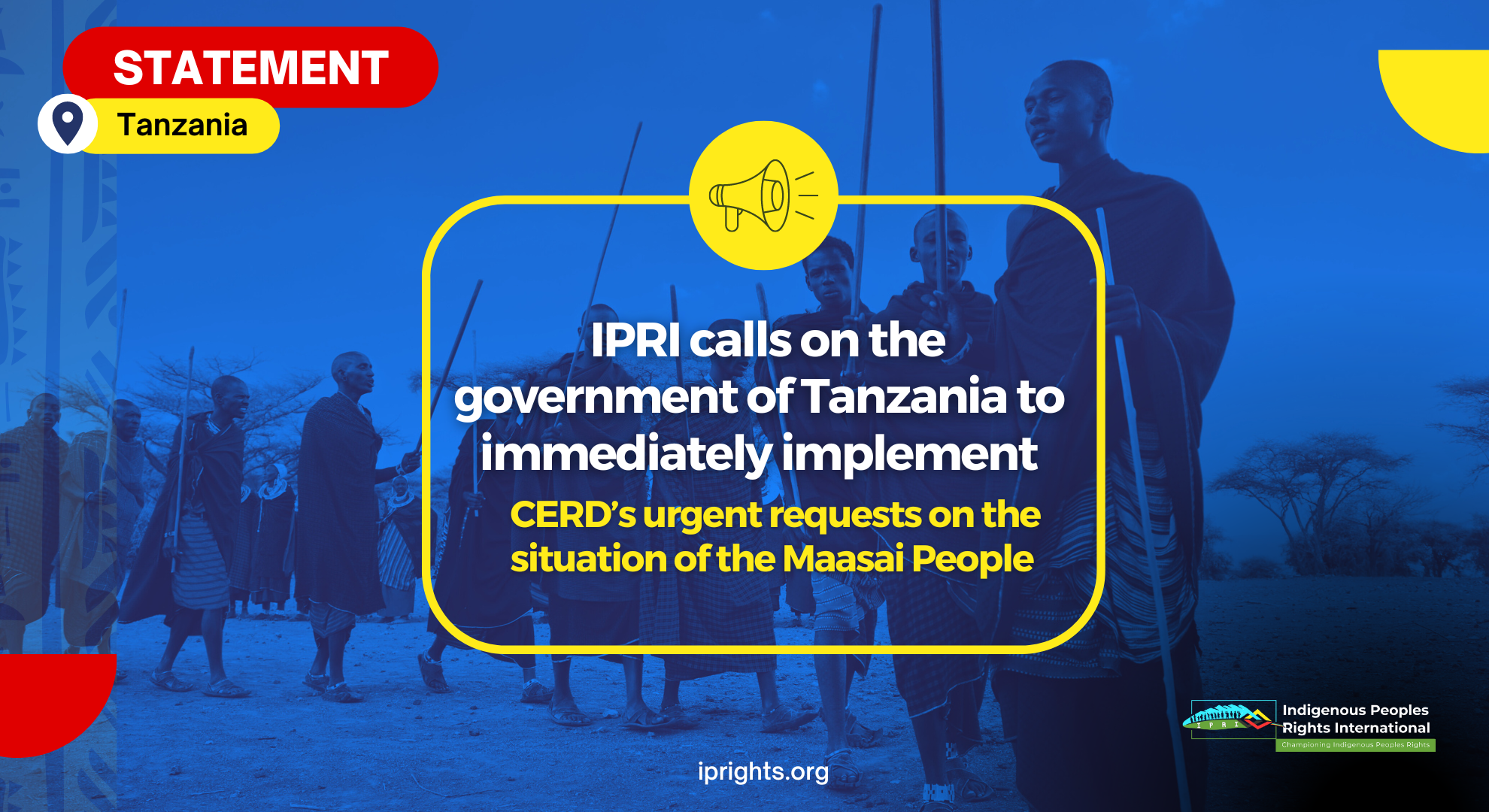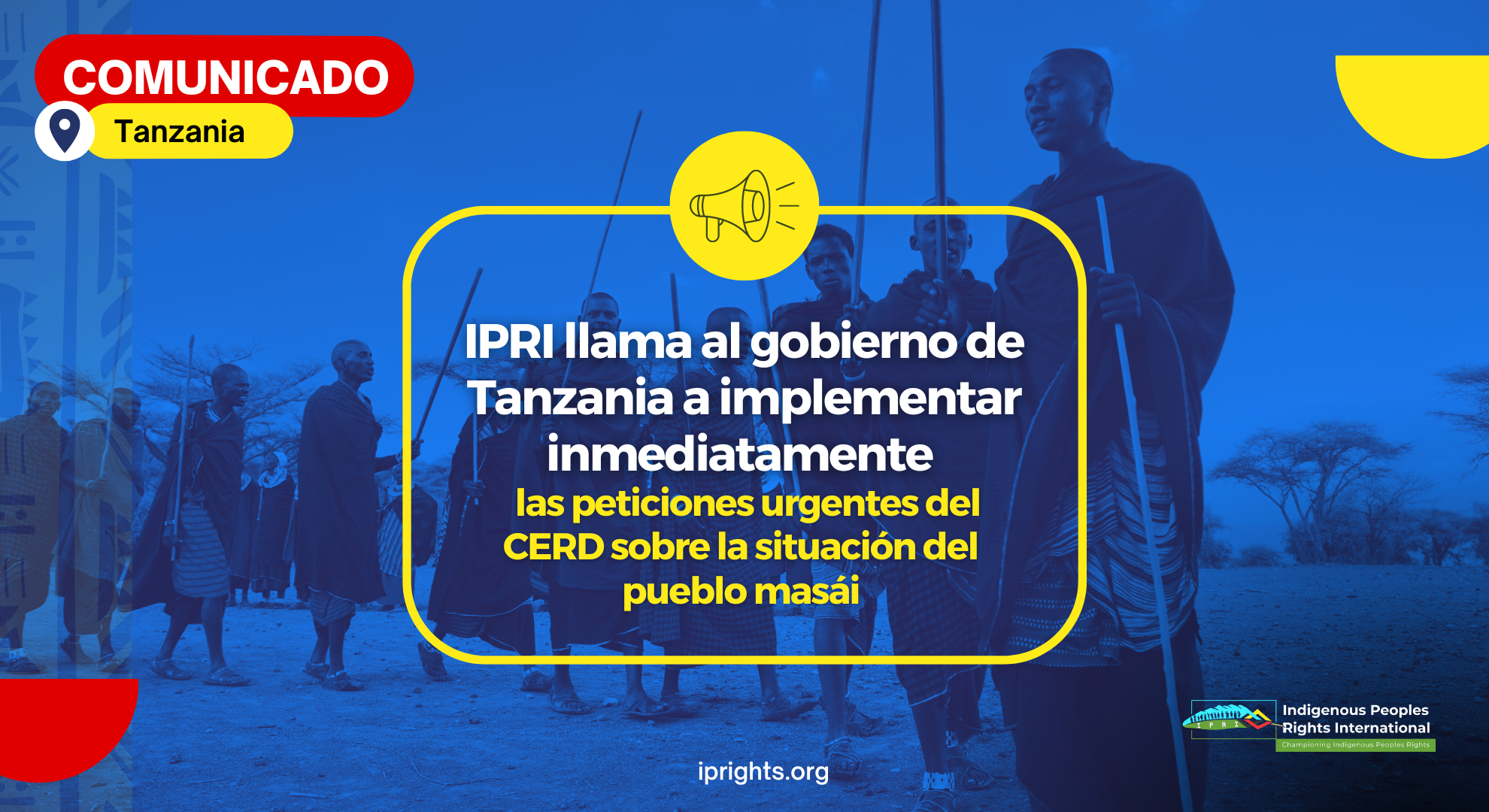The Indigenous Peoples Rights International (IPRI) has learned of the Early Warning and Urgent Action Communication of the United Nations Committee on the Elimination of Racial Discrimination (CERD), whose experts evaluated the prevailing situation of human rights violations of the Maasai people and requested a series of actions to be implemented urgently by the State of Tanzania.
CERD is a United Nations Treaty Body composed of independent experts responsible for monitoring the implementation of the Convention on the Elimination of All Forms of Racial Discrimination. CERD’s Early Warning and Urgent Action Procedure objective is to “prevent existing problems from escalating into conflicts.” In urgent cases, it responds “to problems requiring immediate attention to prevent or limit the scale or number of serious violations of the Convention.” Tanzania ratified the Convention in 1972 and is legally bound by its provisions.
CERD considered the urgent situation of the Maasai under its Early Warning and Urgent Action Procedure. CERD explicitly expressed its deep concern about the worsening situation of the Maasai in the Loliondo and Ngorongoro Conservation Areas of Tanzania and requested Tanzania “to immediately halt plans for relocation and forcible evictions of Maasai communities from their traditional lands.”
Specifically, CERD addressed the violence of the security forces of Tanzania against the Maasai for “safari tourism and game reserve areas for trophy hunting.” IPRI has denounced numerous cases of human rights violations against the Maasai, including criminalization under trumped-up charges, the abuse of force against the Maasai to evict them from Loliondo for the creation of a Game Reserve, and the threats of eviction of the Maasai from their traditional lands in the Ngorongoro Conservation Area.
IPRI praises CERD for upholding the rights of the Maasai and echoes CERD’s deep concerns that, “despite previous calls [from CERD] as well as those from the UN Special Procedures and the African Commission on Human and Peoples’ Rights, the situation of the Maasai has worsened.”
CERD’s communication highlights the need to respect the rights of the Maasai, even when the State of Tanzania doesn’t formally recognize the existence of Indigenous Peoples within its territory. The latter was evidenced during the 22nd Session of the UN Permanent Forum on Indigenous Issues, where Tanzania’s official delegates distributed its “Rebuttal of Claims about the so-called indigenous people in Tanzania” (sic) claiming that “no tribe has any basis or legal claim of right of customary or traditional right of occupancy of the Loliondo Game Controlled Area.”
The document issued by CERD confirms the existence of serious human rights violations that the Maasai people and solidarity organizations have documented and denounced. The State of Tanzania must recognize this undeniable and unjustified situation and act as a democratic state respectful of the rights of its people.
IPRI urges the State of Tanzania to comply with its obligations under international law and follow through with CERD’s requests, specifically to:
- [I]mmediately halt plans for relocation and forcible evictions of Maasai communities from their traditional lands in Loliondo and the Ngorongoro Conservation Area;
- [B]egin consultations with affected Maasai communities in order to obtain their free and informed consent prior to the approval of any project affecting their traditional lands;
- [T]ake measures to effectively protect Maasai communities against reported acts of excessive use of force,intimidation, arbitrary arrests and discrimination and racist speech; and
- [F]ollow the requests made by the African Commission on Human and Peoples’ Rights on 13 June 2022 and by the UN special procedures on 15 June 2022.
IPRI will continue to monitor the development of the serious situation of the Maasai people, as well as the fulfillment of recommendations by the Tanzanian state.
Additionally, IPRI urges Indigenous Peoples’ Organizations, its partners, and allies to continue demanding for the respect and protection of the Maasai.
* * *
Read the CERD Communication: https://bit.ly/3LUh4Et
Learn more about the case: https://bit.ly/41qqVaQ
"The document issued by CERD confirms the existence of serious human rights violations that the Maasai people and solidarity organizations have documented and denounced".



